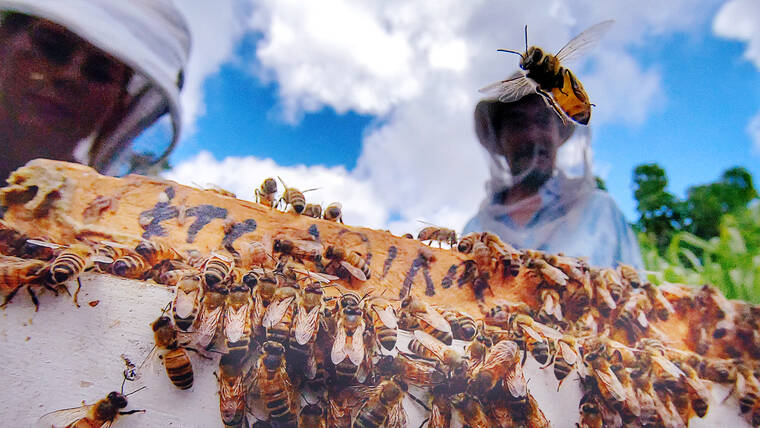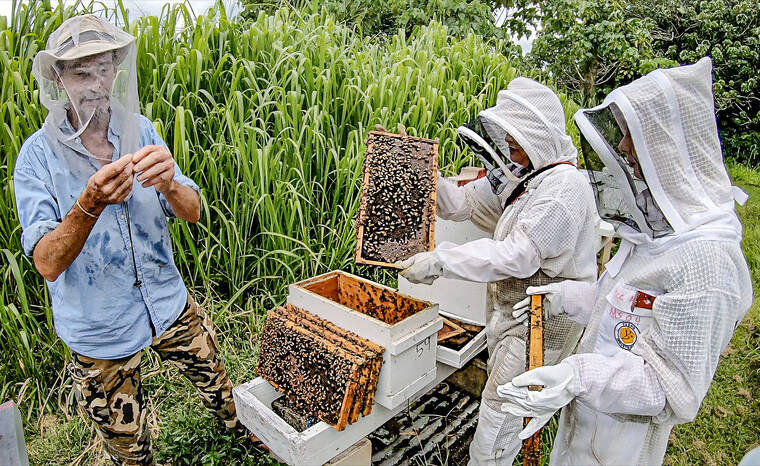LIHU‘E — The University of Hawai‘i, through its UH News program, said the Kaua‘i Community College’s bee hives are one of the few disease-free honeybee sites left in the state.
After conferring with the Hawai‘i Department of Agriculture, Hawai‘i was free of the Varroa mite until the mite was detected on O‘ahu in 2007. Since then, the Varroa mite has also been found on Hawai‘i Island. Only Kaua‘i, Maui, and Moloka‘i have remained free of the pest that threatens bee hives.
The Varroa mite is a parasite that feeds on bee larvae and transmits viruses. A report on honeybees in the United States indicated that beekeepers lost nearly half, or 48 percent, of their managed colonies because of the Varroa mite. This is the second-highest death rate on record.
“I’d say we have the healthiest bees in the world right here on Kaua‘i, because the Varroa mites have not arrived, yet,” said Alan Spencer, a volunteer and instructor with the Kaua‘i Community College Apiary Project. “This is a great advantage to us and to the entire beekeeping community on Kaua‘i.”
The university said in a critical race against time, the dedicated staff and volunteers of the Kaua‘i CC Apiary Project are working to combat the alarming decline of honeybee populations in the United States.
One of the most important things Kaua‘i CC Apiary Project volunteers do is breed queen bees in order to continue to protect the island from the Varroa mites.
“One of our main reasons for being disease-free is being able to raise queens right here on the island, to make them available to other Kaua‘i beekeepers to lessen the chance that someone will import a queen bee,” Spencer said.
The Kaua‘i CC Apiary Project started in 2010 with some funding from the Kaua‘i Rural Development Project. Additional funding in later years came from the Hawai‘i Department of Agriculture, a Carl D. Perkins Career and Technical Education grant and local donors.
Kaua‘i Community College started offering Continuing Education classes in beekeeping, and earned first place awards in the Hawaiian Honey Challenge in 2018 and 2019, before the pandemic shut things down.
“The long-term goal is to support beekeepers on Kaua‘i, offer technical support, and really educate the public,” said Francis Takahashi Jr. a retired electronics instructor and farmer. “Agriculture is really important on this island.”
The importance to agriculture extends beyond Kaua‘i, as the Kaua‘i CC Apiary Project estimates that one-third of Americans’ diet is directly, or indirectly derived from honeybee pollination.
The more immediate future may hold launching an adopt-a-beehive program to generate more education and support, the university said.
Interim Chancellor Margaret Sanchez said her long-term hope is to eventually have a for-credit program so that students may earn college credits along with a certificate in beekeeping.
“The overall hope is to expand our program, and offer it to more people on Kaua‘i so that we can increase the health of the bees, the health of our farms and the health of our crops,” Sanchez said.






